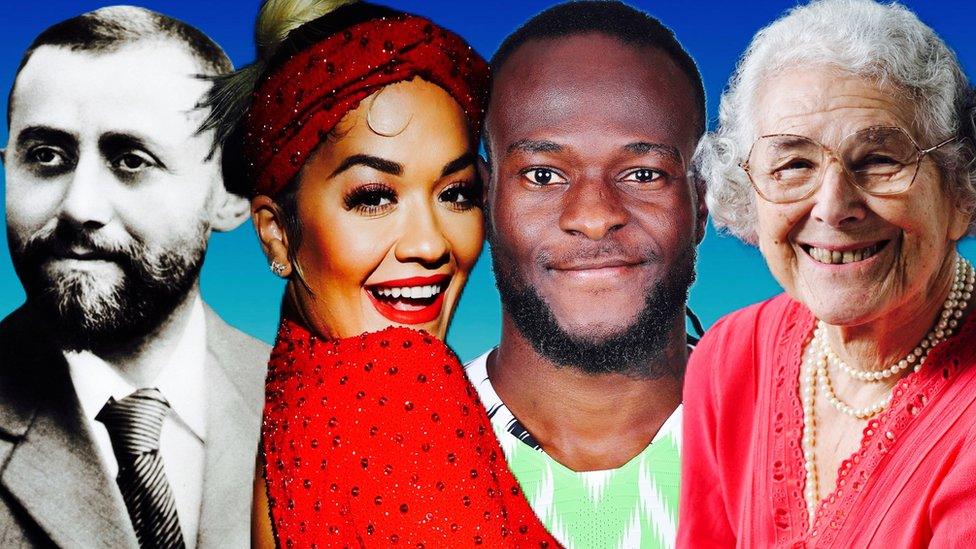What is the Refugee Olympic Team?
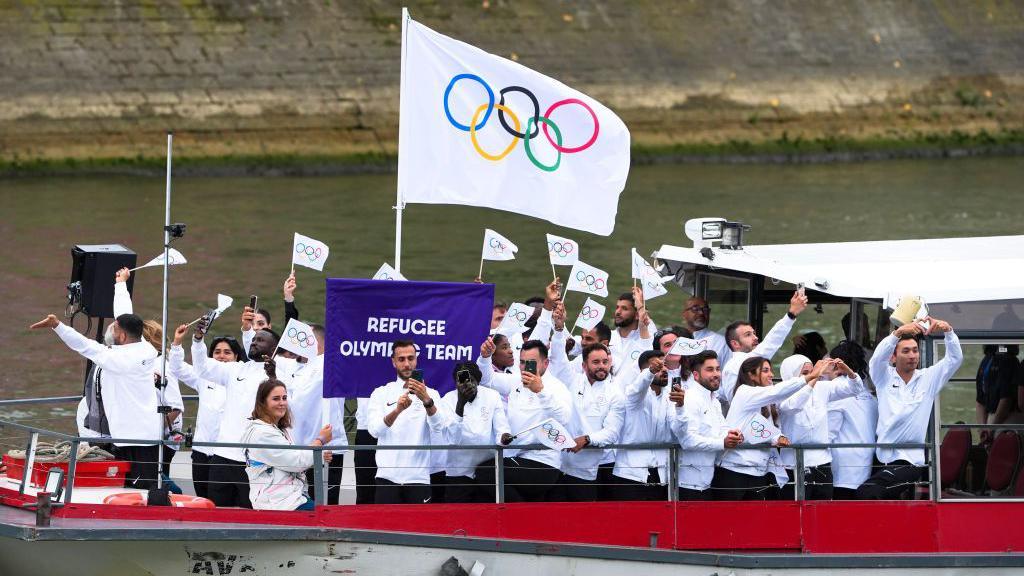
- Published
Among the 206 countries taking part in the 2024 Olympic Games, there are two 'nations' that are not nations at all.
Russia and Belarus athletes are competing as neutral athletes AIN (Individual Neutral Athletes).
And the second is the Refugee Olympic Team known as its French name Equipe Olympique des Refugies (EOR).
A refugee is a person who has been forced to leave their country in order to escape war, persecution or natural disaster.
More Olympic stories
All you need to know about the Paris 2024 Olympics
- Published24 January 2024
What are Team GB's most successful Olympic sports?
- Published30 July 2024
USA's Noah Lyles wins gold in men's 100m race - by 0.005 seconds!
- Published5 August 2024
This is the third time the refugee team will be competing. The first time was at the 2016 Rio de Janeiro Olympic Games and the second time was at the 2020 Tokyo Games in 2021.
There are 37 athletes competing for the Refugee Olympic Team in Paris and there is also a Refugee Paralympic Team competing in the Paris 2024 Paralympic Games made up of eight athletes and a guide runner.
For the first time, the team has their own team emblem – featuring a heart at its centre – instead of competing under the Olympic flag.
And there's another first for the Paris games - boxer Cindy Ngamba is guaranteed a medal - the first for the Refugee Olympic Team since it began in 2016.
Read on to find out more about the team.
How did the Refugee Olympic Team start?
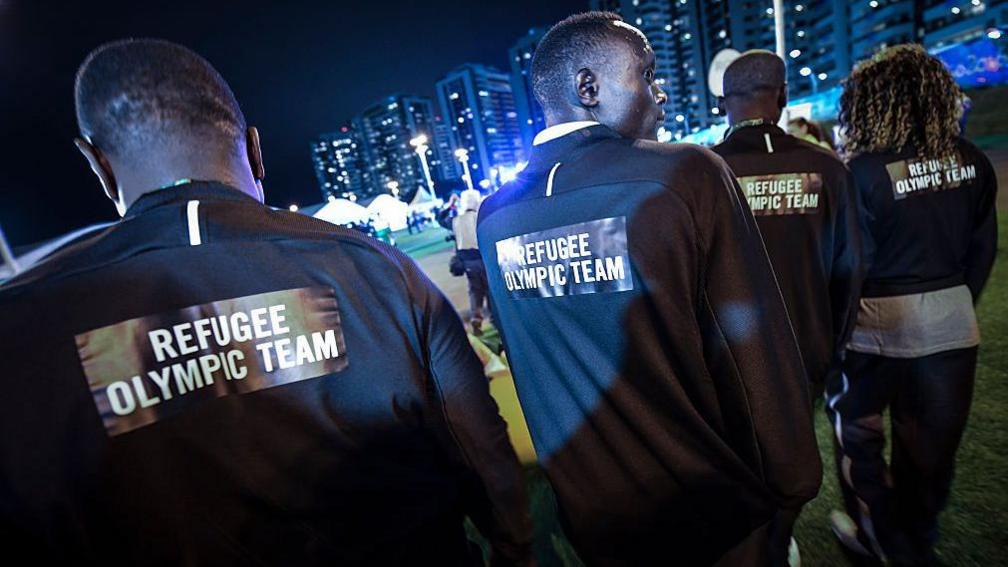
The Refugee Olympic Team first competed at the Olympic Games in Rio de Janeiro in 2016
In 2015, the International Olympic Committee (IOC) created a Refugee Emergency Fund to help bring refugees into sport.
They also created the Refugee Olympic Team to allow athletes to compete in the Olympic Games in Rio de Janeiro in 2016.
In 2015, 65 million people around the world had to leave their homes as a result of conflict or natural disaster.
In that year, more than one million refugees entered Europe after fleeing wars in the Middle East, Africa and Central Asia.
The creation of the Refugee Team was designed to send a message of hope to millions of refugees around the world.
The UN refugee agency reported in June that 120 million people have been forced to flee their homes by war, violence and persecution as of April 2024.
Who is in the Refugee Olympic Team?
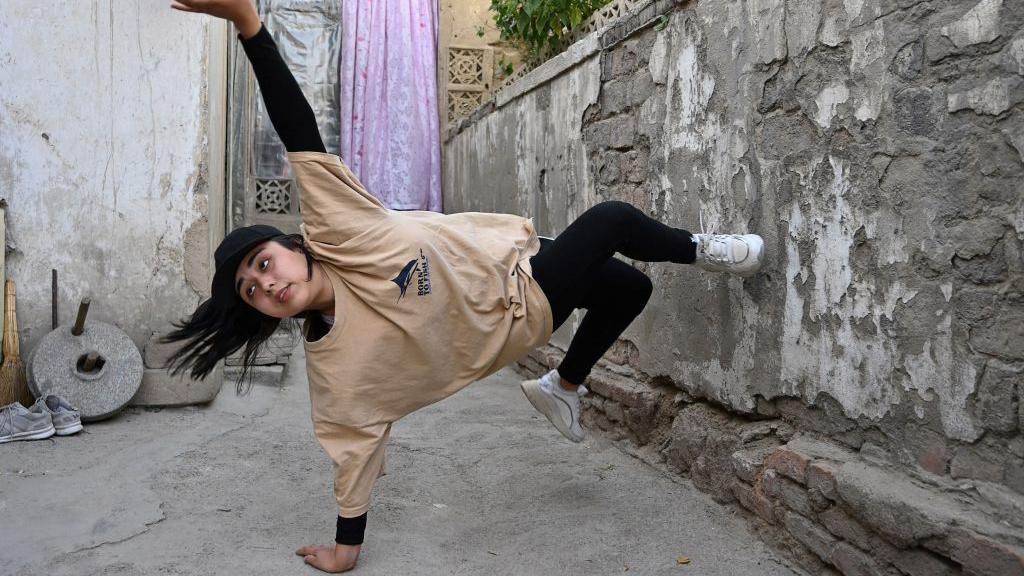
Breakdancer Manizha Talash in Afghanistan in 2021, the Olympic athlete left the country shortly after the Taliban came to power
There are 37 athletes in the Refugee Olympic Team taking part in 12 different sports - athletics, badminton, boxing, breaking, canoeing, cycling, judo, shooting, swimming, taekwondo, weightlifting and wrestling.
The athletes come from 11 countries including Iran, Syria, Afghanistan, Eritrea, South Sudan and Cuba.
Host countries, where the athletes live and are recognised as refugees include Great Britain, Germany and France.
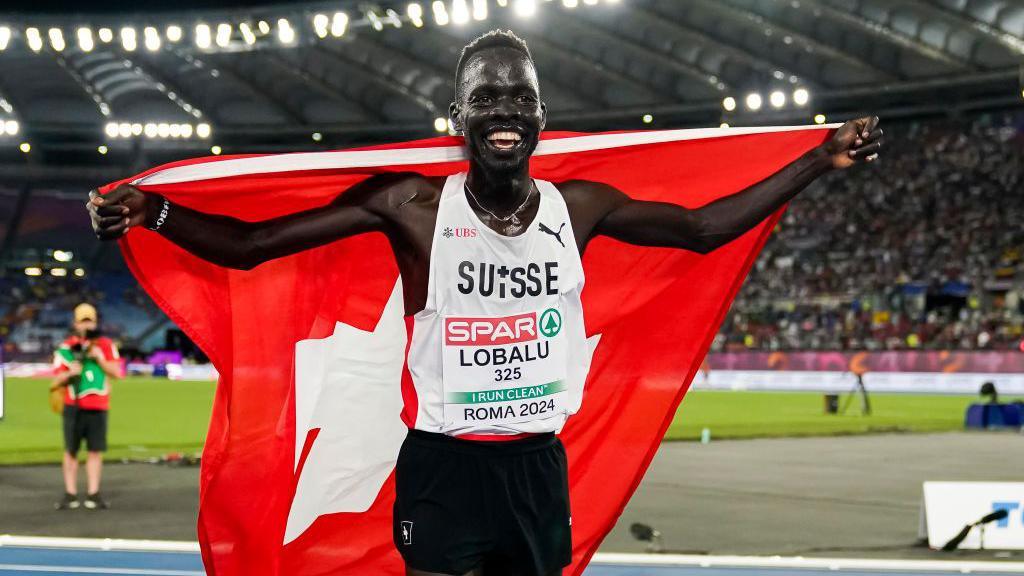
Dominic Lokinyomo Lobalu won gold at the 2024 European Athletics Championships
Athletes include:
Boxer Cindy Ngamba, who moved to the UK from Cameroon at age 11. She trains with GB boxing but cannot compete for the team because she does not have a British passport. She was one of the Refugee Olympic Team flag-bearers in the opening ceremony.
Taekwondo athlete Yahya Al-Ghotany, 19, lives in Jordan but is originally from Syria. The second flagbearer, he will be one of the youngest competitors when he takes to the mat on 8 August.
Breakdancer Manizha Talash fled Afghanistan in 2021 after the Taliban returned to power. Under the Taliban, women have effectively been banned from sports.
Weightlifter Yekta Jamali Galeh is originally from the Islamic Republic of Iran, but lives in Germany. She is the only female weightlifter on the team.
Distance runner Dominic Lobalu fled South Sudan and eventually settled in Switzerland. He was inspired to run by Mo Farah. In the 2024 European Athletics Championships, he won the gold medal in 10,000 metres and the bronze medal in 5000 metres.
How is the Refugee Olympic Team doing in the Paris Games?
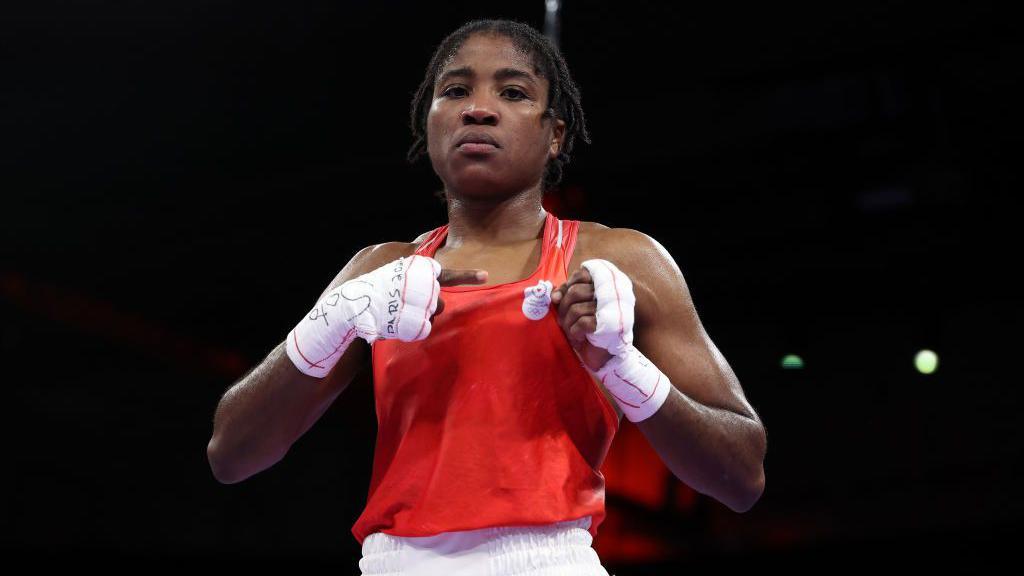
Cindy Ngamba is guaranteed an Olympic medal - a first for the Refugee Olympic Team
No athlete from the Refugee Olympic Team has ever won a medal at the Games, but this will change in Paris.
Cindy Ngamba beat Davina Michel from France on points to reach the 75kg boxing semi-finals, becoming the first ever athlete from the Refugee Olympic Team to guarantee an Olympic medal.
Ngamba is set to fight Panama's Atheyna Bylon on Thursday for a place in the gold medal match.
More on refugees
- Published20 June 2023
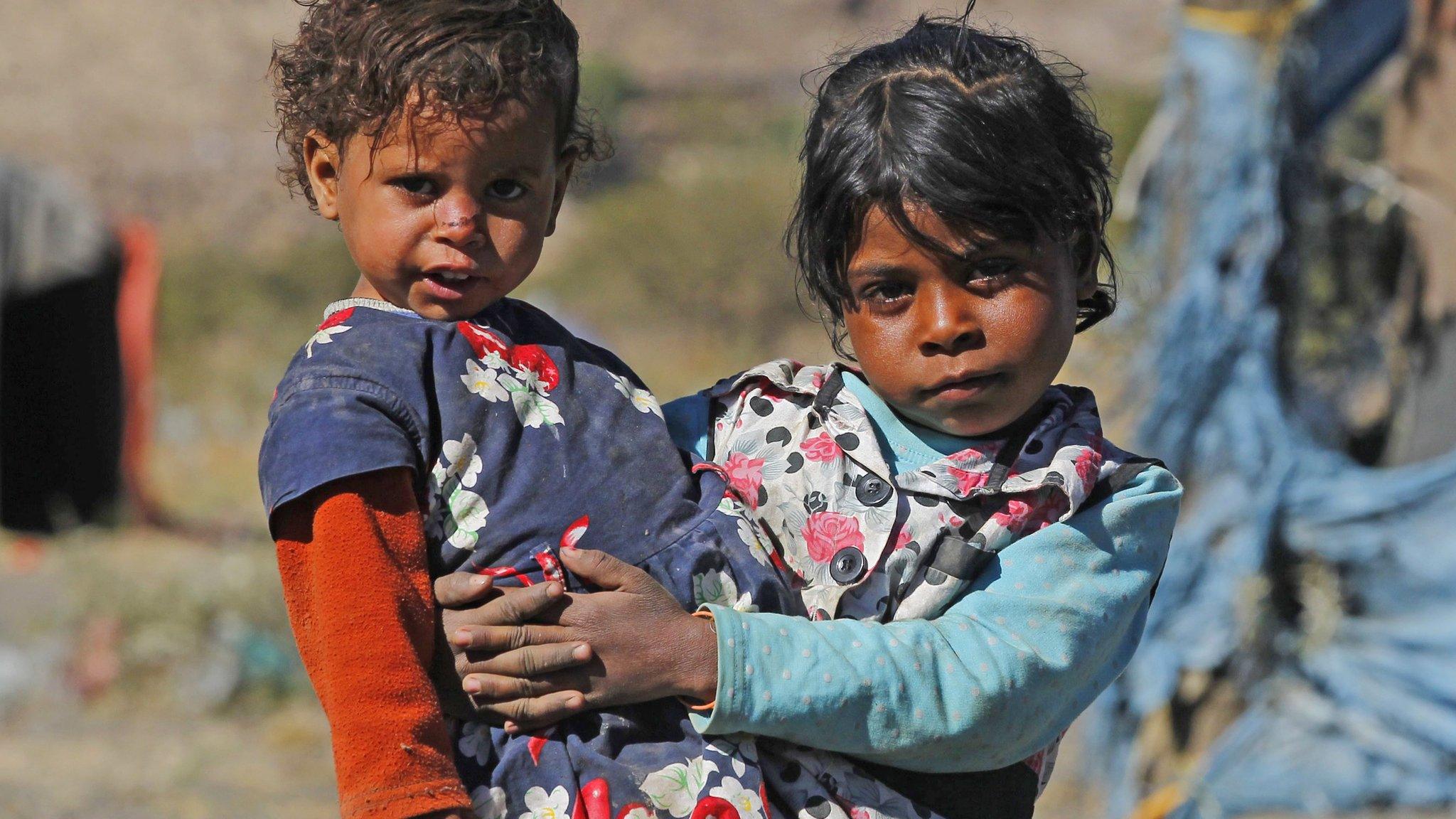
- Published14 February 2023

- Published19 June 2020
